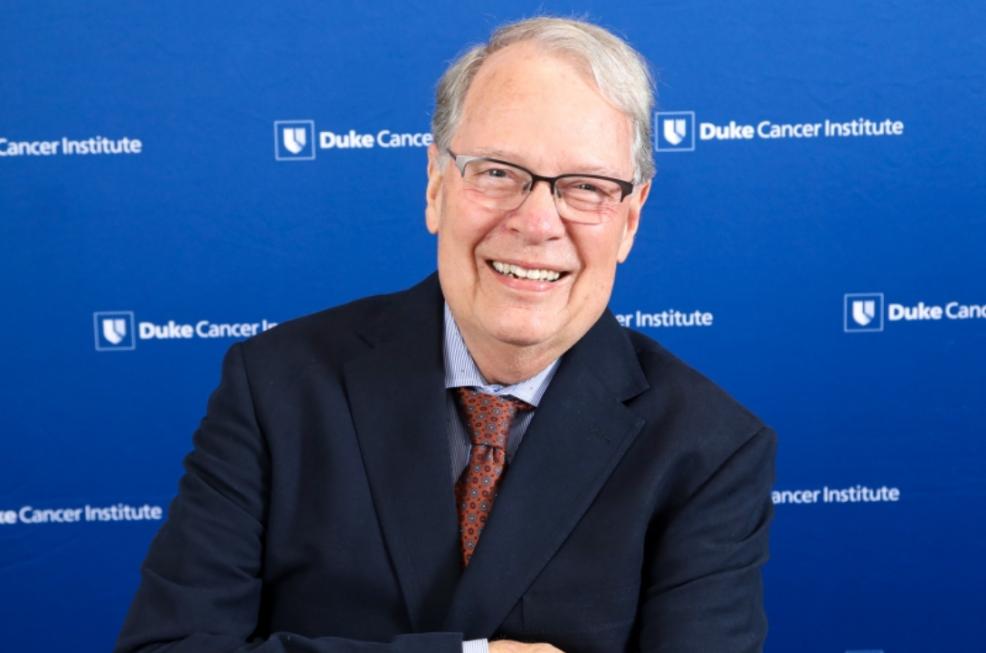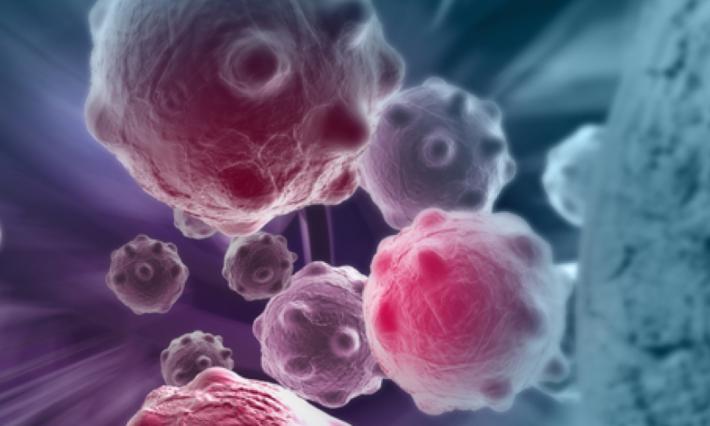
On June 28, Joseph Odell Moore, MD, celebrated his 75th birthday. On June 30, the Duke Cancer Institute hematologic oncologist, after 44 years, retired from clinical practice.
“At the end of June, I took a deep breath. I was exhausted,” smiled Moore. “Totally exhausted. And I said to myself, “I’m doing the right thing.””
In early August, Moore had an ablation to treat atrial fibrillation. It went well and the prognosis is good. A couple weeks later, the distinguished professor of Medicine was back at his office on a two-day-a-week schedule slowly getting things in order for the final year of his research career.
Moore was born in 1944 in the city of Greenville, South Carolina, when his father was in flight training there. He grew up in Rochelle, Georgia with his mother, stepfather, and three half-brothers.
“My father,” Moore shared, pointing to a Martin B-26 Marauder model plane by the window, “was a World War II bomber pilot. He was killed in action when I was less than a year old.”
Not far from the plane, a treasured pair of angels from Venezuela and an intricate wooden owl carving — both gifts — were on display. Angels are said to be benevolent beings that guide and protect. Owls, of course, are wise.
Moore’s legacy of service to patients at Duke — combining compassionate care and medical wisdom — would no doubt make his father proud.
The self-described “southern boy” earned his BS degree at Emory University in Atlanta, then ventured north — earning his MD at Johns Hopkins University in 1970. He would complete a three-year medical residency there with a two-year gap serving in the Public Health Service Commissioned Corps in Hawaii.
Moore “solidified” his interest in cancer when he was assigned to an NIH-funded epidemiology study in Hawaii — the Japan-Hawaii Cancer Study — comparing cancer in Japanese immigrant men in the state to cancer in Japanese men in Japan.
Still depressurizing from a “very intense internship” at Hopkins fueled by coffee, and with more free time in this new post, his wife Alice, whom he’d met and married while in medical school, pushed him to find a hobby.
Moore joined a marine diving club, mixing with marines who went back and forth to Vietnam, an air force colonel, a couple of Phantom jet pilots and one nuclear submarine officer.
He also came to enjoy playing handball, often with “Odd Job” from Goldfinger.
“Hawaii was a great place to be, and a good cultural experience,” reflected Moore, who also developed other hobbies, including collecting the Japanese Sumida pottery and Chinese Mud Men figurines that today occupy his office shelves, and finding and trading cowrie shells.
Once his tour of duty in Hawaii was finished, he returned to Hopkins to complete his medical residency and in 1975 came to Duke for his Hematology/Oncology fellowship.





